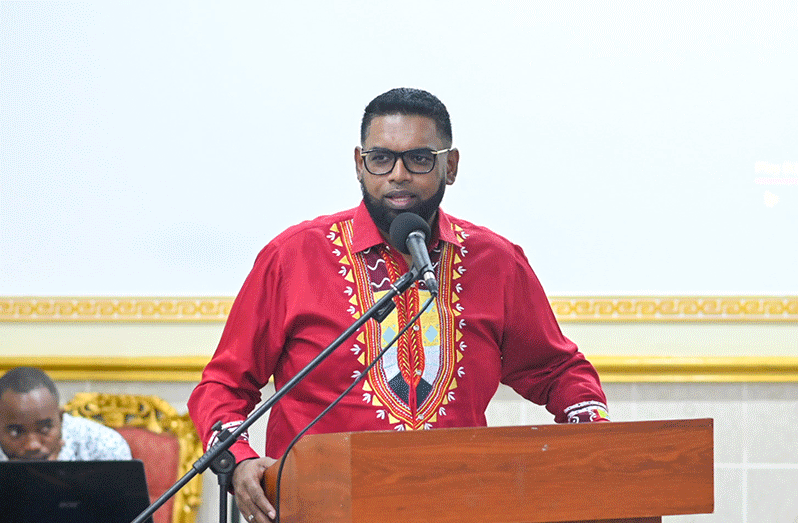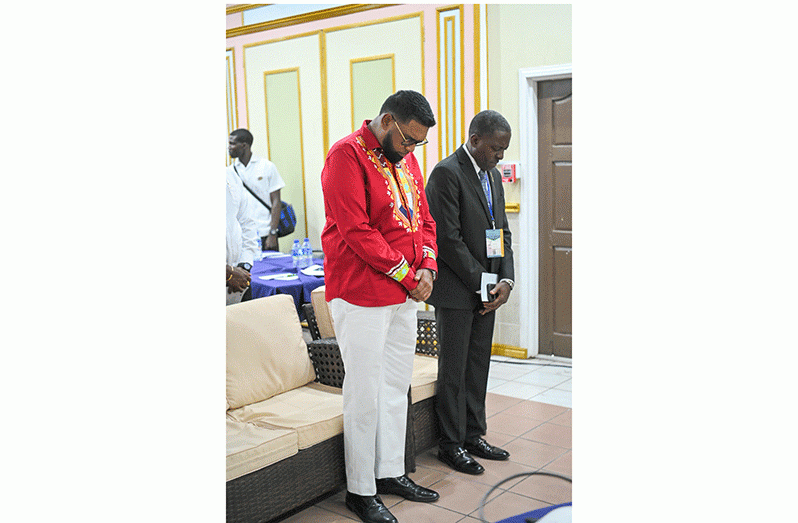President Ali urges religious leaders; says multiculturalism should be examined
RELIGIOUS leaders are considered to be the pillars of communities, and their approach to leadership should be multifaceted and cross-dimensional to positively influence the masses, President, Dr. Irfaan Ali, has said.
President Ali during his address at the General Conference of the Seventh Day Adventist Centre for South Asian Religions annual leadership conference on Monday, said leaders must adapt to every nation.
“The church and the religious bodies are not fighting over oil or geographical boundaries. You are not fighting over sanctions, you are providing leadership to promote the equitable nature of the human family, to promote the peaceful coexistence of people in every tribe,” he told the gathering at the Regency Suites, Georgetown.
While acknowledging the efforts to host broader discussions on the role of religion in society, the President said that it is pivotal for leaders, especially those in the Caribbean Community (CARICOM), to recognise the role culture and the arts play in influencing and guiding the masses, especially the youths.

“The Seventh Day Adventist church is adopting the broad principle of providing leadership and guidance to every nation… your conference today on leadership should examine the role of culture, art, [and] music in shaping the minds of young people and the next generation,” the Guyanese Head of State said.
To foster stronger ties with the communities, Dr. Ali suggested that religious leaders critically examine their differences from a perspective of diversity.
“Unless you put yourself in a position to understand the problem of all people and all nations then how are you going to understand that leadership? How are you going to define that leadership?” he questioned, further adding: “I want us at this leadership conference to reshape the conversation of diversity and differences, and come up with leadership values to promote a positive dispensation of differences and diversity.”
Dr. Ali believes this approach could result in a positive change among the masses. For example, he said that political leaders across the region have raised concerns over the influence of modern-day music that promotes violence.
He believes the religious community could assist in addressing this; however, they must first acknowledge the many different cultures.
There are more than one billion South Asians in the world. Many live in South Asian countries such as India and Nepal, but there is also a large diaspora population living in the Caribbean. South Asia is the birthplace of several major world religions including Hinduism, Sikhism, and Jainism.
The Seventh-day Adventist Church encourages the development of positive relationships with all people, including South Asians; as such the Center for South Asian Religions desires to increase awareness of South Asian cultures and religions in order to better understand how to build these positive relationships and collaborate for the greater good.



.jpg)








